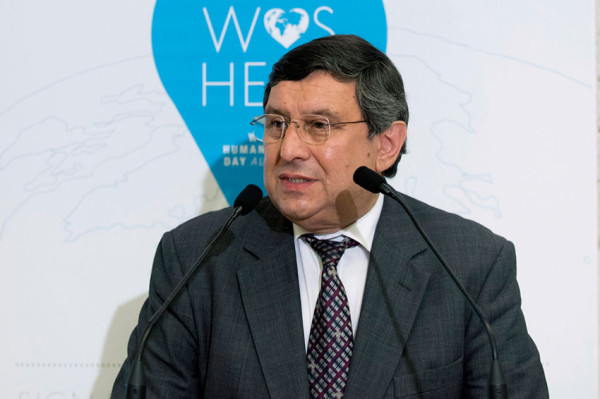Senior humanitarian aid workers, United Nations organizations and civil society members are meeting today in Norway to discuss what the international humanitarian community can realistically do to prepare for and to respond to the humanitarian impact of a nuclear weapon detonation.
“The humanitarian consequences of a nuclear attack or an accidental nuclear blast are potentially devastating and catastrophic,” the Director of the UN Office for the Coordination of Humanitarian Affairs (OCHA) in Geneva, Rashid Khalikov, told the press on the margins of the International Conference on the Humanitarian Impact of Nuclear Weapons in Oslo, Norway.
“We need to collectively consider the extent to which we can – as a humanitarian system – effectively respond to such a crisis,” Mr. Khalikov said.
The two-day conference which started today includes presentations by experts and discussions with practitioners from the fields of health services, development, environment, finance, and emergency preparedness and response.
According to the Norwegian Ministry of Foreign Affairs, the conference will focus on identifying a nuclear weapon detonation and learning from historical experiences about its medical impacts. Participants will also discuss the wider economic, developmental and environmental consequences of a nuclear weapon detonation. The groups will then discuss what governments, international organizations, civil society and the general public can do to prepare for a potential nuclear catastrophe.
OCHA is attending the conference within its role to support Member States with preparedness and coordination of international response to disaster and emergencies.
“We support humanitarian agencies in saving lives, mitigating human suffering and providing urgent assistance,” Mr. Khalikov told the journalists.
He added that if the humanitarian community cannot respond effectively, as the initial assessment shows, “then it underlines our common responsibility to do everything we can to prevent the use of these weapons.”
The United Nations chief, Secretary-General Ban Ki-moon, has made disarmament one of his top priorities.
He and other senior UN officials are supporting the establishment of zone free of nuclear weapons and other weapons of mass destruction in the Middle East. Currently, there are five such zones: Latin America and the Caribbean; the South Pacific; South-East Asia; Central Asia; and Africa.






